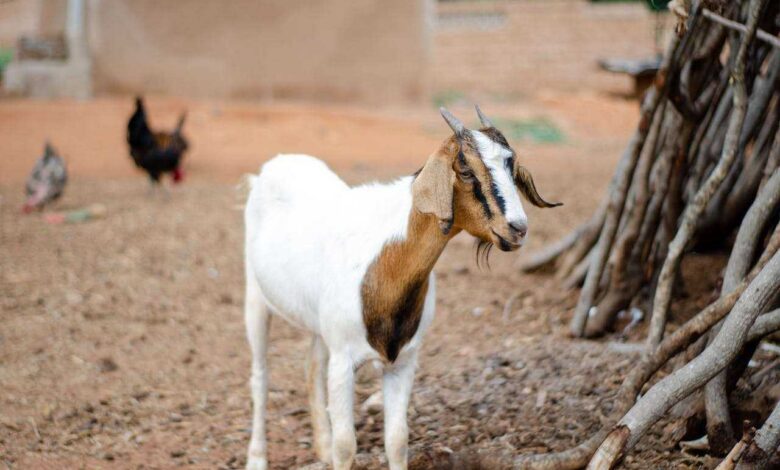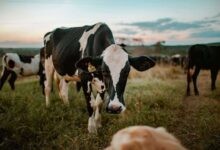
Innovations in agricultural technology have paved the way for more sustainable and efficient farming practices, and solar-powered goat milking machines represent a significant advancement in the dairy industry. These innovative devices offer numerous benefits, from reducing energy costs to minimizing environmental impact. Let’s delve into the world of solar-powered goat milking machines and explore how they are revolutionizing dairy operations.
Understanding Solar-Powered Goat Milking Machines
Solar-powered goat milking machines are automated systems designed to milk goats using solar energy as their primary power source. These machines incorporate solar panels to harness sunlight and convert it into electricity, which powers the milking process. By utilizing renewable energy, these systems offer a sustainable alternative to traditional milking methods that rely on fossil fuels or grid electricity.
Key Components and Features
Solar Panels
Solar panels are the heart of solar-powered milking machines, responsible for capturing sunlight and converting it into electrical energy. These panels are typically mounted on rooftops or other elevated structures to maximize sun exposure.
Milk Collection Unit
The milk collection unit includes vacuum pumps, pulsators, and milk containers responsible for extracting and storing milk from the goats. Advanced systems may incorporate automated milking arms or teat cups for efficient milking.
Battery Storage System
To ensure uninterrupted operation, solar-powered milking machines often include battery storage systems to store excess solar energy generated during sunny periods. These batteries provide backup power during periods of low sunlight or at night.
Benefits of Solar-Powered Milking Machines
Reduced Energy Costs
By harnessing solar energy, farmers can significantly reduce their reliance on grid electricity or fossil fuels, resulting in lower energy costs and long-term savings.
Environmental Sustainability
Solar-powered milking machines offer a renewable and environmentally friendly alternative to conventional energy sources, helping to reduce greenhouse gas emissions and minimize ecological footprint.
Increased Efficiency
Automated milking systems streamline the milking process, increasing efficiency and productivity on the farm. Farmers can milk more goats in less time, allowing them to focus on other essential tasks.
Remote Operation
Solar-powered milking machines can be operated remotely, allowing farmers to monitor and control the milking process from their smartphones or computers. This feature provides greater flexibility and convenience, especially for large-scale dairy operations.
Considerations for Implementation
Initial Investment
While solar-powered milking machines offer long-term cost savings, the initial investment in equipment and installation can be substantial. Farmers should carefully assess their budget and financing options before committing to solar technology.
Maintenance Requirements
Regular maintenance and upkeep are essential to ensure optimal performance and longevity of solar-powered milking machines. This includes cleaning solar panels, inspecting equipment for wear and tear, and servicing electrical components as needed.
Location and Sunlight Exposure
The effectiveness of solar-powered milking systems depends on adequate sunlight exposure. Farmers should assess their location’s solar potential and ensure proper placement of solar panels for maximum energy production.
Future Outlook and Adoption
As renewable energy technologies continue to advance and become more affordable, the adoption of solar-powered milking machines is expected to increase. With ongoing research and development, these systems will become even more efficient and cost-effective, further driving their widespread adoption across the dairy industry.
Embracing Sustainable Dairy Practices
Solar-powered goat milking machines represent a groundbreaking solution for dairy farmers seeking to reduce costs, minimize environmental impact, and increase efficiency. By harnessing the power of the sun, these innovative systems offer a sustainable and reliable alternative to traditional milking methods. As the demand for sustainable agriculture grows, solar-powered milking machines are poised to play a significant role in shaping the future of dairy farming.
Embrace sustainable dairy practices with solar-powered goat milking machines, harnessing the power of the sun to reduce costs, increase efficiency, and minimize environmental impact. Discover the benefits of solar technology for your dairy operation today.
Frequently Asked Questions (FAQs) about Solar-Powered Goat Milking Machines
Q1: How do solar-powered goat milking machines work?
- A1: Solar-powered goat milking machines utilize solar panels to capture sunlight and convert it into electricity, which powers the milking process. These machines incorporate components such as vacuum pumps, pulsators, and milk containers to extract and store milk from goats.
Q2: What are the benefits of using solar-powered milking machines?
- A2: Solar-powered milking machines offer several advantages, including reduced energy costs, environmental sustainability, increased efficiency, and remote operation capabilities.
Q3: Are solar-powered milking machines suitable for all dairy operations?
- A3: Solar-powered milking machines are most suitable for dairy operations located in areas with ample sunlight exposure. Farmers should assess their location’s solar potential and consider factors such as initial investment, maintenance requirements, and equipment placement before implementing solar technology.
Q4: How reliable are solar-powered milking machines?
- A4: When properly installed and maintained, solar-powered milking machines can provide reliable and consistent performance. Backup battery storage systems ensure uninterrupted operation during periods of low sunlight or at night.
Q5: What is the lifespan of solar-powered milking machines?
- A5: The lifespan of solar-powered milking machines depends on factors such as the quality of components, maintenance practices, and environmental conditions. With regular upkeep and proper care, these systems can operate efficiently for many years.
Q6: Can solar-powered milking machines be used in remote or off-grid locations?
- A6: Yes, solar-powered milking machines are well-suited for remote or off-grid locations where access to traditional electricity sources may be limited or impractical. Their reliance on solar energy makes them a viable option for sustainable dairy operations in various settings.
Q7: How do I maintain a solar-powered milking machine?
- A7: Regular maintenance is essential to ensure optimal performance and longevity of solar-powered milking machines. This includes cleaning solar panels, inspecting equipment for wear and tear, servicing electrical components, and monitoring battery storage systems.
Q8: Are there any government incentives or rebates available for installing solar-powered milking machines?
- A8: Depending on the country or region, there may be government incentives, tax credits, or rebates available to encourage the adoption of renewable energy technologies like solar power. Farmers should research local regulations and programs to determine eligibility for financial incentives.
Q9: Can solar-powered milking machines be integrated with existing dairy infrastructure?
- A9: Yes, solar-powered milking machines can be integrated with existing dairy infrastructure, provided there is sufficient space for solar panel installation and compatibility with existing equipment. Farmers may need to consult with solar energy experts or agricultural engineers to assess feasibility and optimize integration.
Q10: Where can I learn more about solar-powered milking machines and their applications?
- A10: Farmers interested in learning more about solar-powered milking machines and their applications can consult with agricultural equipment suppliers, renewable energy specialists, or industry organizations focused on sustainable farming practices. Additionally, online resources, research publications, and educational workshops may provide valuable insights into solar technology for dairy operations.








